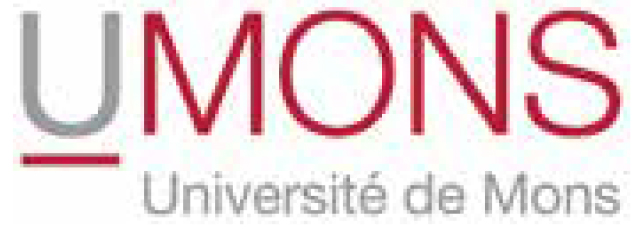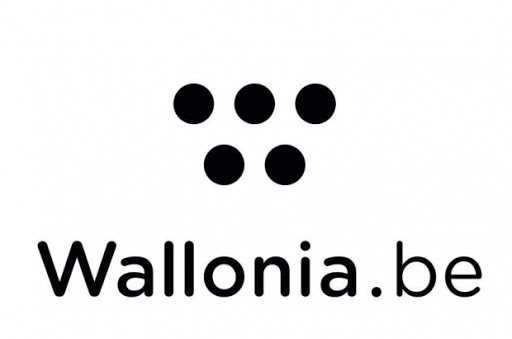The University of Mons deploys its scientific expertise in areas like materials sciences and engineering, information technology and computer science, biosciences...

Most of the research at UMONS is organized in 10 institutes which cover: New Arts and Media Technologies (NUMEDIART), Biosciences (BIOSCIENCES), Information Technologies and Informatics (INFORTECH), Language Sciences and Engineering (LANGUAGE), Materials Sciences and Engineering (MATERIALS), Risk Management Sciences (RISKS), Complex Systems (COMPLEXYS), Energy (ENERGY), Health Sciences and Technologies (HEALTH), Human and Organizational Research and Development (HUMANORG).
The university maintains many fruitful exchanges with its Multitel, Materia Nova and INISMa research centres and with the spin-offs and startups which gravitate around it.
UMONS is active in many scientific disciplines related to Aeronautics and Space research development: Materials and production technology, Fluids mechanics and thermal engineering, Reliability and maintenance, Surface treatment and last but not least, Information and Communication Technologies.
Materials and production technology
UMONS develops an expertise in the field of manufacturing processes. Specific research projects address design of closed mold composite parts for aircrafts or simulation of high-speed machining.
Other topics to be mentioned are the design of piezoelectric motors to provide a gain in weight and control in space applications, the gained experience in additive manufacturing methods such as EBM, the development of reinforced high temperature thermoplastic and thermoset resins, and the design of power electronic motor drives.
UMONS has some projects related to the manufacturing of composites parts for aircraft applications by a specific process, Resin Transfer Molding, which consists in injecting some resin in a closed mold filled by a fibrous reinforcement.
Keywords: Resin Transfer Molding, piezoelectric actuators, Virtual Manufacturing, composite materials, Additive Manufacturing, thermoplastic and thermoset resins, dc-dc converter, wide bandgap components, organization of production units and operational maintenance.
Fluids mechanics and thermal engineering
UMONS research efforts concentrate on the study and simulation of any type of flow. Research is mainly carried out with advanced CFD (Computer Fluid Dynamics) software. Numerical simulation methods for radiant transfer in absorbing media are also developed in UMONS as well as combustion gases special properties modeling.
In particular: Modeling, development and simulation in Computation Fluid Dynamics (CFD) for aeronautical, turbomachinery and multiphysical applications. The main development themes concern fluid-structure interactions, advanced preconditioning methods and turbulent transition modeling. Applied studies are focused on design and optimization for flow problems in facilities or engines (optimization of fans, compressors and turbines, design of separator and cyclone chambers...)
Keywords: Design and optimization of fan and turbo-generators blades, modeling and numerical simulation of high temperature systems, turbo-alternators cooling.
Reliability and maintenance
UMONS research activities aim at developing techniques to improve the safety of mechanical equipment and optimize their maintenance strategies. UMONS has significant expertise in structure dynamics, rotating machines, and vibratory solicitations.
Past and current research activities include: experimental modal analysis and finite element model updating, identification of input forces by inverse methods, vibration testing and finite element modeling of electronic boards embarked on spatial vehicles, equivalence criteria between vibration tests, analysis and modeling of pyroshocks, prediction of ground vibrations induced by railway vehicles.
Keywords: Diagnosis of vibration problems, estimation of the residual lifetime of equipment, optimization of maintenance policies, predictive maintenance of electromechanical devices, pyrotechnical shocks on electronic spatial devices, maintenance 4.0, health management.
Surface treatment
Materials performances depend on the properties of their surface and on the interactions of the latter with the surrounding media. Modifying a surface or introducing surface layers contribute to optimizing materials properties or make new properties appear (self-healing, corrosion resistance, wetting, absorption, friction and wear, optics, viscosity, etc.). UMONS research activities focus on this.
UMONS is also specialized in the study of surfaces and interfaces: with the structural, electronic, and optical properties (OLEDs and organic solar cells), thin film deposit (plasma technology) and surface analysis (depth profiling and elemental composition).
Keywords: Plasma surface treatments, thin organic coating, surface functionalization, corrosion resistance, surface and interface characterization, chemical sensors, electrochemistry of functional coatings, texturing surface.
Information and Communication Technologies
With the recent deployment of drones and the growing need to process and interact with large multimedia databases, mastering and developing innovative data processing techniques has become a crucial expertise in many areas including aerospace and aeronautics. UMONS has leading-edge expertise in image and speech processing (also in noisy environments) and human-machine interfaces. It has also developed specific skills in positioning and indoor/outdoor geolocalization (in airports/trains) and eye-tracking in virtual spaces (VR) which could be applied to space conditions.
UMONS also benefits from a large group of experts filling the entire data chain, including :
- optical-fiber-based sensors, low-power sensors, GPS/GNSS receivers for nanosats, cubesats, radiation-resistant space systems, ASIC/embedded signal processing and edge computing ;
- selection of the appropriate wire and wireless transmission technologies and standards, low-power transmission, indoor/outdoor UWB geolocalization and transmission in adverse conditions ;
- cloud storage, parallel and distributed computing ;
- data mining, artificial intelligence (AI) and Edge AI.
The Fablab Mons, which benefits from a specific focus on Internet of Things (IoT) brings the research results and experts in this field closer to entrepreneurs and industries to create innovative solutions.
Keywords: Artificial intelligence, speech and image processing, AR/VR, (edge) AI, indoor geolocalisation, hyperspectral, RAD-SEE, IoT, GPS/GNSS, HPC, telecommunications.
https://web.umons.ac.be/fr/instituts-de-recherche/
Place du Parc 20
7000 Mons
Belgium
